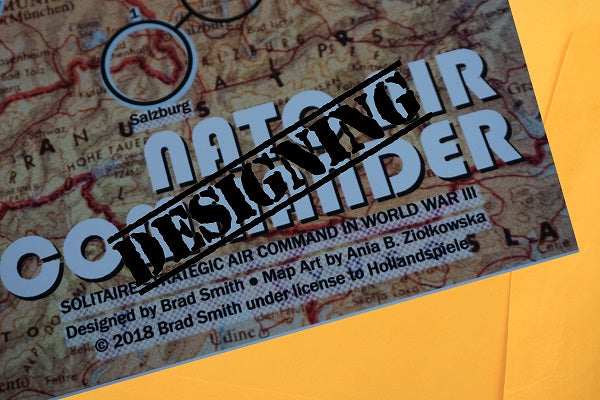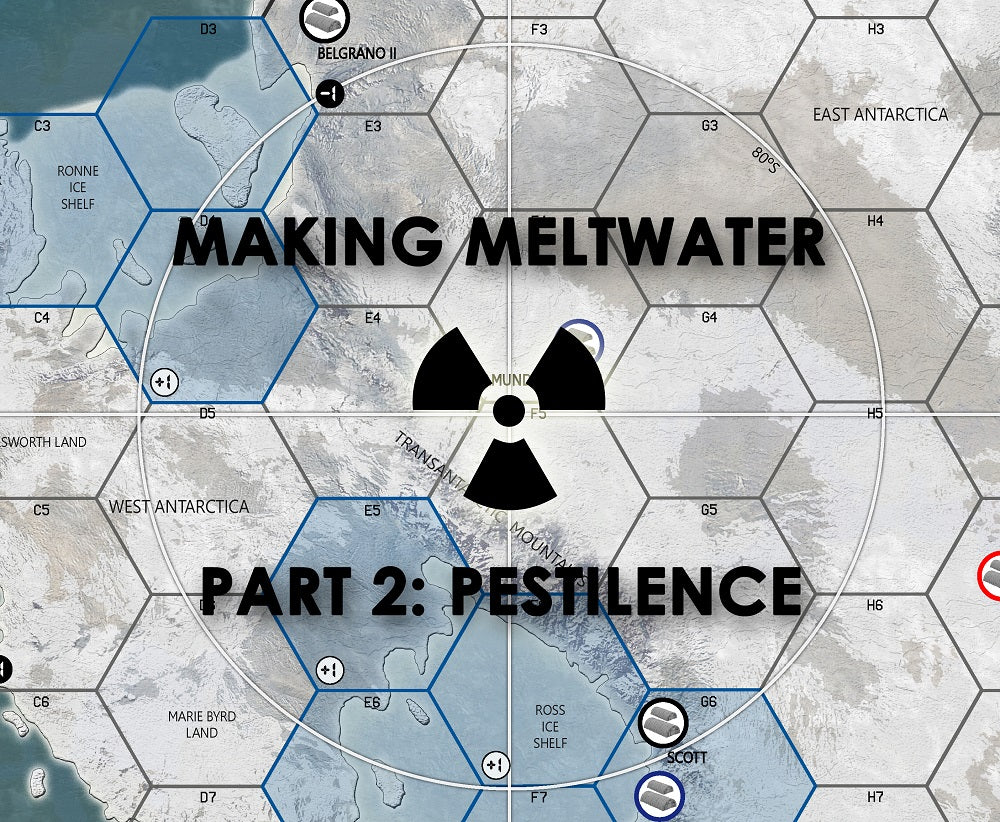Hollandazed: Thoughts, Ideas, and Miscellany — Cold War Gone Hot
DESIGNING NATO AIR COMMANDER (by Brad Smith)

NATO Air Commander is a love letter to 1980s Cold War Gone Hot games like NATO: The Next War in Europe (VG, 1983), The Third World War series (GDW, 1984), and Red Storm Rising (TSR, 1989). In all of those games, you basically control the progress of a ground war in Central Europe between the Warsaw Pact and NATO. I suppose my attraction to this era and type of game comes from my youth. My earliest memories are of Ronald Reagan. I can remember how much the idea of a big war in Europe seemed like an inevitability rather than...
MAKING MELTWATER, PART 3: DEATH [OF THE AUTHOR] (by Erin Lee Escobedo)
![MAKING MELTWATER, PART 3: DEATH [OF THE AUTHOR] (by Erin Lee Escobedo)](http://hollandspiele.com/cdn/shop/articles/mm_pt_3_27fba542-432a-4e8c-9a59-2d993175163b_1024x1024.jpg?v=1538356907)
I think every designer wants to feel like a genius artisan? You want to make something that feels like an impossible effort, something that radiates blood and sweat and toil. Something that evokes the same sort of awe you feel watching a glassblower work, hours of patient coaxing guided by years of diligent training. You want the player (that kindred spirit!) to stand at the edge of your board and get a little vertigo, imagining the climb. Which is why I’m vaguely embarrassed that Meltwater just kind of happened to me. The very first prototype. In March of 2016, I...
MAKING MELTWATER, PART 2: PESTILENCE (by Erin Lee Escobedo)

Meltwater is not in any way a deep mathematical simulation of the viability of Antarctica. I’m neither a demographer nor an ecologist; I’m a housewife with a history fetish. It was always meant to be first and foremost a game. But games are a form of narrative art, or at least a form of narrative media. Each game conveys, if not an outright message, a frame to view its subject through. And frames, perspectives, biases have added weight when we tackle historical and sociological subjects. We have a responsibility as creators to understand what our work says, even by omission....
